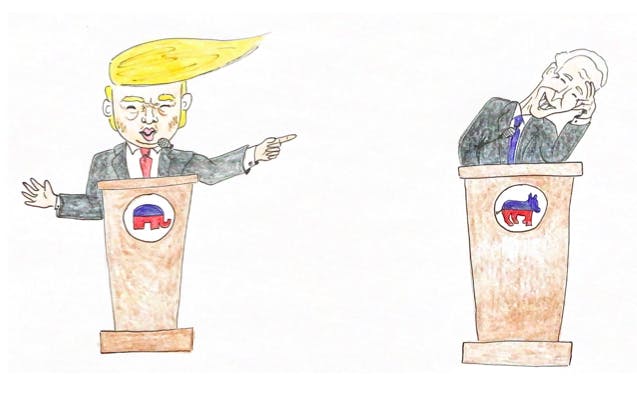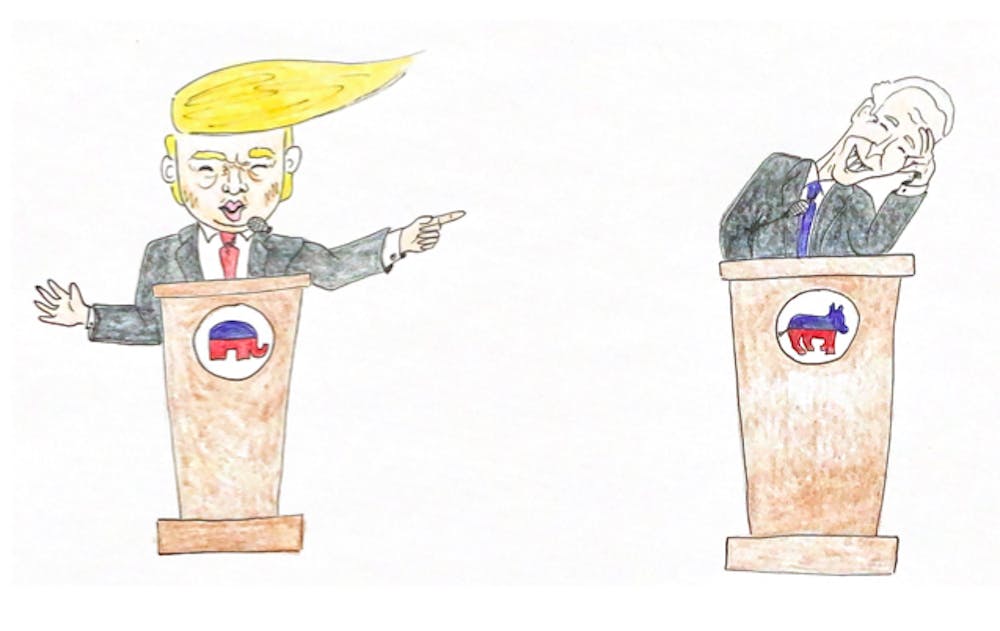
Assuming political scientists’ fundamentals-based forecast models are accurate, Joe Biden will win next Tuesday’s presidential election with about 53% of the two-party popular vote, and somewhere north of 300 Electoral College votes.
But can we trust those forecasts? In 2016, contrary to much media reporting, they turned out to be very prescient — at least in the aggregate — in predicting Hillary Clinton’s popular vote victory. The final aggregate forecast, which I presented in a college-wide talk, missed her winning popular vote total by less than 1%. Unfortunately for Clinton supporters (to say nothing of my reputation as an election prognosticator!), her popular vote victory did not translate into an Electoral College win. Instead, she lost to Trump in the Electoral College by a margin that translated to about 70,000 votes cast across three battleground states – a tiny but decisive amount. In our majoritarian electoral system, small changes in the location of the vote can have big consequences.
Could we see a repeat of this popular vote-Electoral College split next Tuesday? Not likely – at least not if Biden wins by a margin close to what the aggregate forecast models are predicting. Note that all these forecasts were issued by Labor Day — or before. For many students, the ability of political scientists to predict the outcome of the presidential race more than two months before Election Day flies in the face of what they read and hear in the media’s election coverage.
Cable news talking heads and other pundits portray the election as a horse race, in which candidates’ relative standing is in almost daily flux. From the media perspective, voters’ sentiments shift, often dramatically, in response to myriad events: a change in candidate tactics, a misstatement or other “gaffe,” a strong debate performance and, not least, the highly anticipated “October Surprise” (Hillary’s emails!). Entire news cycles are devoted to parsing the impact of “bombshells” and “turning points.” In 2016, we had the added attraction of Russian electoral interference and voter suppression thrown into the mix.
This narrative drives ratings and sells papers. However, it is also very inaccurate.
Research shows that voters are not so easily swayed, and that presidential elections hinge on much more significant factors: the state of the economy, whether the nation is at war or peace and — in 2020 — the impact of a global pandemic. These are the “fundamentals” the forecast models use to generate their election predictions. Assuming these models are accurate, why bother campaigning at all?
The answer is that effective campaigns make the fundamentals salient to voters, preferably in a way that helps one’s own campaign while hurting one’s opponent. Political scientist Lynn Vavreck argues that presidential candidates adopt one of two basic campaign strategies. Candidates who benefit from the economic fundamentals will run by highlighting it. Those who do not will try to shift the narrative to another issue. We see both strategies utilized by Trump and Biden during the homestretch of the current campaign. After trying various campaign frames, Trump has decided to tout the recent economic recovery as his closing argument, hoping voters overlook the economic slowdown that preceded it. Biden, in contrast, wants to remind voters of Trump’s (mis)handling of the coronavirus and the economic repercussions. The forecast models assume more voters will respond to Biden’s campaign narrative
They also assume, of course, that the global pandemic will not alter how voters respond to the fundamentals. If this assumption is wrong, however — if , for instance, voters do not hold Trump primarily accountable for the corona-induced economic slowdown experienced during the second quarter of 2020 — then the forecasts will be off. And I will endure another four years hearing “But you said Trump would lose!”
Matt Dickinson is a professor of political science at Middlebury.
Predicting the 2020 election: Will forecasters repeat mistakes made in 2016?

Comments


